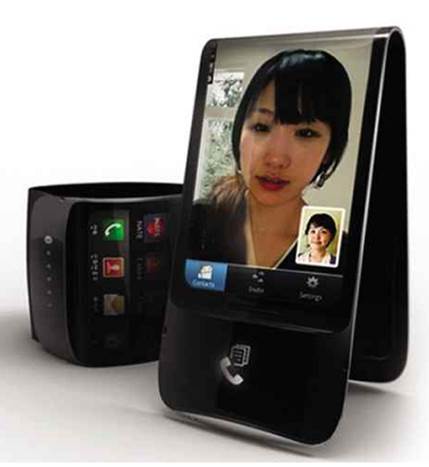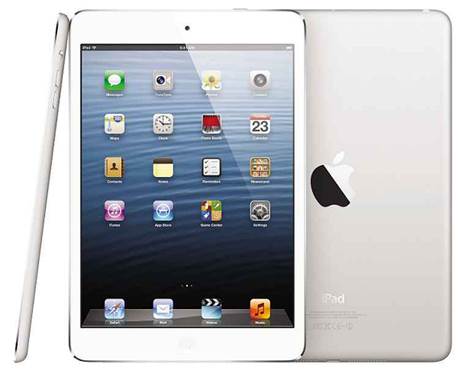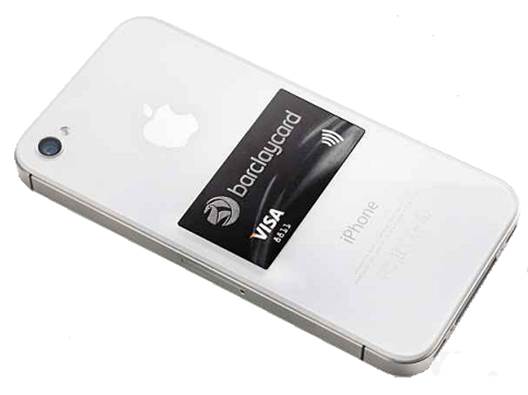Another new year is upon us, and it’s
only traditional to look towards the future and feel hopeful around about now.
Let’s assume the Mayans were wrong and 2013
is actually going to happen (apologies to anyone alarmed by that possibility).
Since the march of progress is pretty much unstoppable, global economic crisis
or no global economic crisis, that means we have all sorts of exciting
technological developments to look forward to.

What
New Technology Will 2013 Bring Us?
By this time next year, we might be
interacting with our computers in new ways, we might be using our mobile phones
to do more things for us, and we might have bought some new kind of gadget that
doesn’t even exist yet, but which will change our lives forever? Or we might
just get a new games console and update our operating systems. Either way, it
seems inevitable that some things will change, and now seems like a good time
to take a peek into the future and see what’s awaiting us on the other side of
the 2012 non-apocalypse…
Changes To Your Computer
One of the biggest changes your computer is
likely to see in 2013 is a new operating system. Microsoft’s Windows 8 was
released in 2012, at the end of October, but unless you’re really keen or you
had to buy a new computer in the last two months of the year, chances are you
haven’t upgraded to it yet. Next year, though, you probably will.
Indeed, there’s not really any reason not
to. Much of the initial response to Windows 8 focused on how different the user
interface is that Windows 8 replaced the familiar old desktop with a baffling
array of brightly coloured tiles, instead. While that’s true, you can also use
Windows 8 in much the same way as you used Windows 7, Vista, XP or whatever
you’re upgrading from: you just need to hit the ‘Desktop’ button and it’ll all
be pretty much the same as ever.
It’s reassuring to have that option, but if
you’re using a tablet rather than a desktop PC, it might not make much sense
to, and you might even find you like the tiles. The way we use computers is
starting to change, and even Microsoft is aware of that and adapting
appropriately.
The End Of Computers?
Desktop computers are already an endangered
species. Stats vary, but it’s clear that laptops, tablets and even smartphones
are eating into the market, both in our homes and in our offices. Many
businesses now allow their employees to work remotely, and using portable computers
means they can work on the move, from home or the office or the coffee shop.
Thanks to the popularity of the iPad, tablets are everywhere, and the shift
from large desktop PCs designed to be used in one location to smaller,
wirelessly connected computers that can be used anywhere seems irreversible.
Expect the tablet market to grow next year,
with more models and more variety coming onto the market. The shift towards
using tablets has also seen a change in the way we interact with our computers.
The keyboard and mouse are starting to seem a little old fashioned now that
touch-screens are everywhere - we’ve probably got Apple to thank for that one
too. Touch-screens may not be new, but they are changing the way we, and
software developers, think about user interfaces, so watch for more
touch-oriented technology next year.
One device hoping to hammer the final nail
into the mouse’s coffin is the Leap. It’s a small, innocent-looking device that
connects to your computer via USB and detects movements within 8 cubic feet of
it. The developer, Leap Motion, says it can track movements down to one
hundredth of a millimeter, and it has various gestures programmed in for
telling your computer to do things by just waving your hand.
“By this time next year, we might be
interacting with our computers in whole new ways”
Whether it’ll take off or not remains to be
seen, but it’s available to preorder now from the Leap Motion website
(www.leapmotion.com) and it’ll be shipping in early 2013. If gesture control
becomes standard, maybe we’ll see the end of typing-related RSI…
Changes For Mobile Devices
Speaking of typing, it looks like the way
we type on mobile devices is going to change. Google has recently been showing
off its new ‘gesture typing’ input method, which is part of the new Android 4.2
operating system. It, um, might look a little familiar to some existing Android
users: it’s basically Swype, the input method that lets you drag your finger
from one letter to the next across a touch-screen keyboard, rather than tapping.
If Google’s backing it, maybe it’ll become more common; it’s definitely an
easier and more comfortable method of typing than trying to hit each individual
key on a tiny phone keyboard.

Changes
For Mobile Devices
While Google’s Android and Apple’s iOS
currently dominate the mobile operating system landscape, that might start to
change in 2013. Mozilla’s Firefox OS was demonstrated at a few tech events in
2012, and the first handsets running the new open-source operating system are
due to be released before next summer.
It’s based on HTML5 and offers to free
users and handset manufacturers from the bog of rules and regulations they
currently face from existing platforms. Industry analysts predict the new OS
will only have around a 1% market share by the end of 2013, but we wouldn’t be
so quick to write Mozilla off. Just look at the success of its browser, which
managed to gain a large chunk of the market despite Microsoft’s seemingly
unassailable hold on that space. We’d say Firefox OS is definitely worth
keeping an eye out for.
More New Mobile Features
If a new operating system doesn’t sound
like an exciting enough change, mobile phone manufacturers have something else
up their sleeves: flexible phones. Samsung and Nokia are just two of the
companies who reckon thin, bendable phones might be the next step in mobile
phone evolution. Using OLED (Organic Light Emitting Diode) technology or
graphene, a thin, stretchy and unbreakable material invented a couple of years
ago, manufacturers could create electronics that you can fold up and put in
your pocket.
“If you thought losing your phone was
annoying now, it looks like it might become a much more serious inconvenience
by the end of 2013”
The main advantage of creating flexible
gadgets like that is that they’d be more difficult to break; you’d never
shatter your screen by dropping your phone, for instance. The same kind of
technology could also lead to smart newspapers or posters that can update their
own details or all sorts of other Sci-Fi sounding ideas, but for now,
manufactures seem to be focusing on phones, and the first bendy handsets should
hit the market next year.

Apple
iPad
In more practical news, it looks like
paying for things with your mobile phone will start to become commonplace next
year. Barclaycard has already developed a method of contactless payment that
involves sticking a PayTag to your phone, then scanning it on a device in a
shop to quickly and easily pay for your shopping without needing to carry a
card or enter a PIN. There are some fairly obvious security implications to
consider here, so the Barclaycard method can only be used to pay for things
that cost under $32.
Google also has a mobile payment system,
Google Wallet, which has been launched in the US but not here, although it will
it will probably make its way over the pond in the next year.

More
New Mobile Features
Both payment methods use near-field communication
(NFC) to send information about a user’s payment details to a merchant’s
terminal, and as NFC-enabled phones get more common, we might start seeing more
uses for the technology. That’s great and all, but if you thought losing your
phone was annoying now, it looks like it might become a much more serious
inconvenience by the end of 2013.
New Gadgets Coming Your Way
There are a couple of developments in
gadgetry that we’re calling now, just to get them out of the way: more things
will connect wirelessly to one another and more things will offer voice
control. Mobile phones have been able to do certain things like calling someone
in your address book - in response to spoken commands for years, but Apple’s
Siri pushed that technology up a notch. Where Apple leads, many other companies
tend to follow, so we reckon there’ll be more opportunities to talk to your
gadgets in the near future.
Gaming-wise, 2013 should see new versions
of both the Xbox and the Playstation. There’s not a lot of solid information
around about either of them, but rumour has it that Sony and Microsoft might
both be aiming for a Christmas launch. All sorts of outlandish developments
have been hinted at - either console might have touch screen controllers, more
advanced motion control, built-in keyboards and lord knows what else but all
we’d really bank on is that both will be faster, more powerful and able to
support even more detailed graphics.
As for digital cameras, well, they’re facing
a fairly uncertain future since most people now have decent cameras built into
their smartphones and won’t bother carrying around a digital camera as well.
Obviously, there’s room at the high end of the camera market, since phone
cameras can’t do everything and professional photographers will still need
something more powerful, but for the low-end consumer camera, 2013 might be the
end of the line.